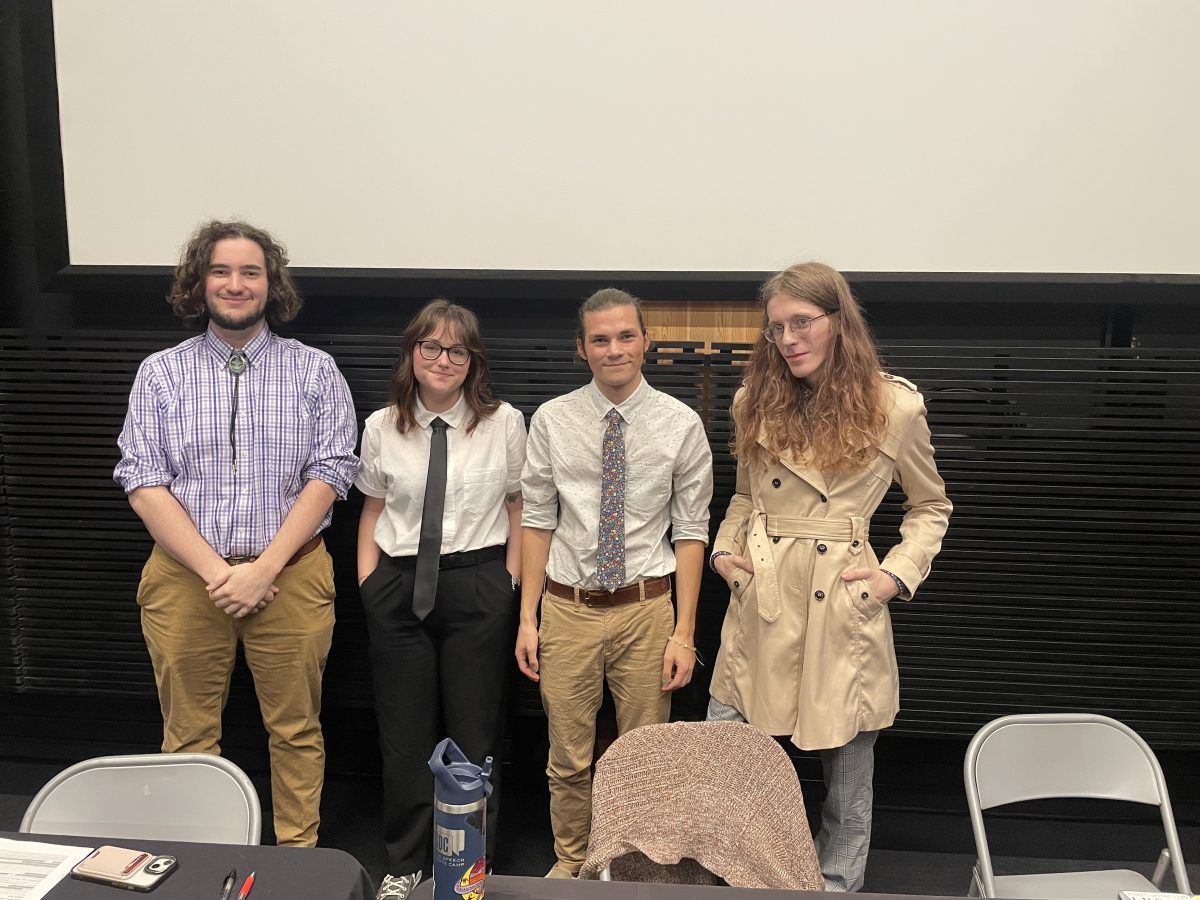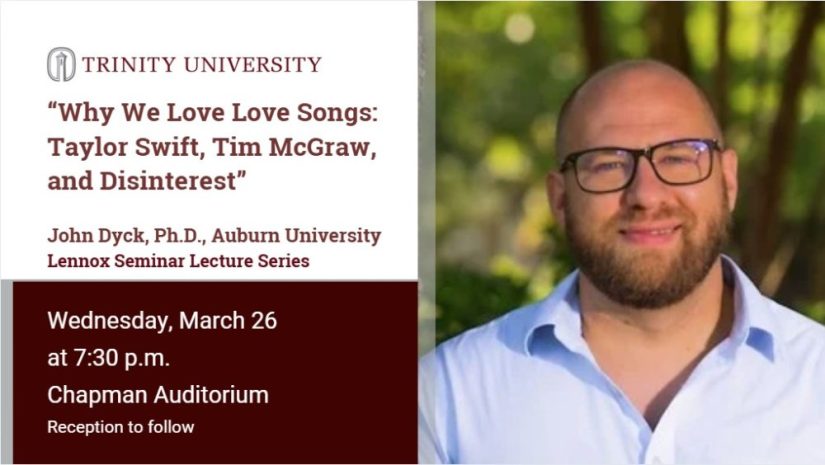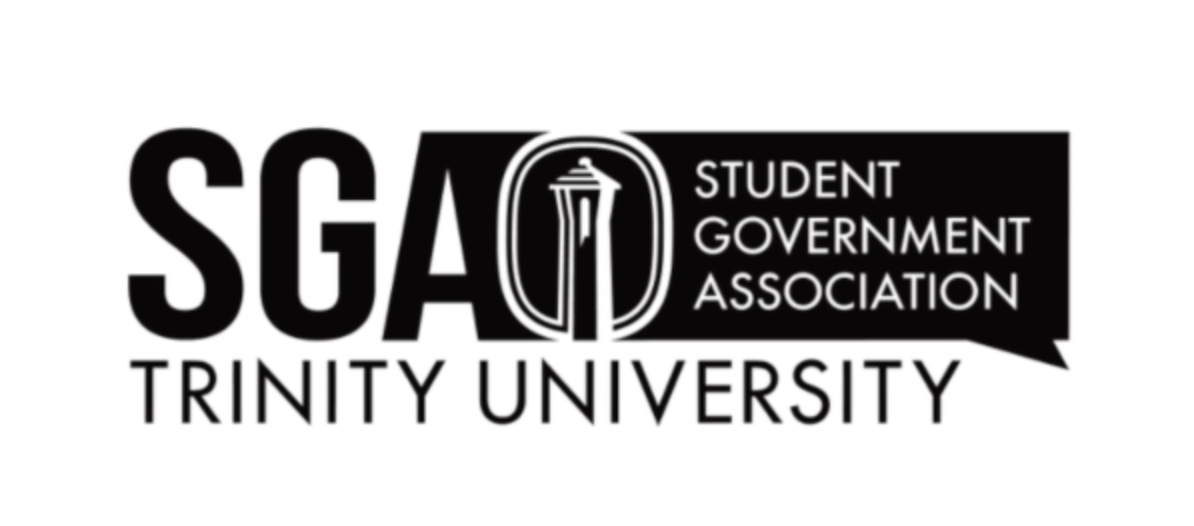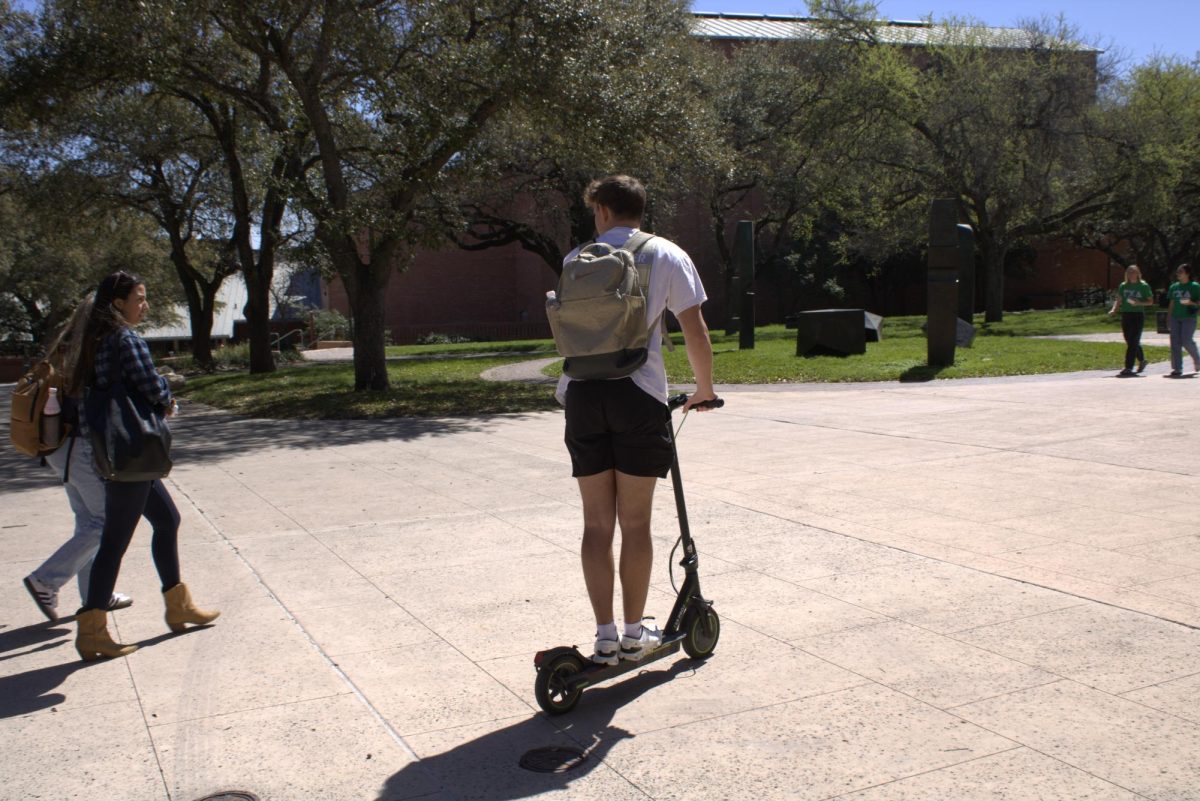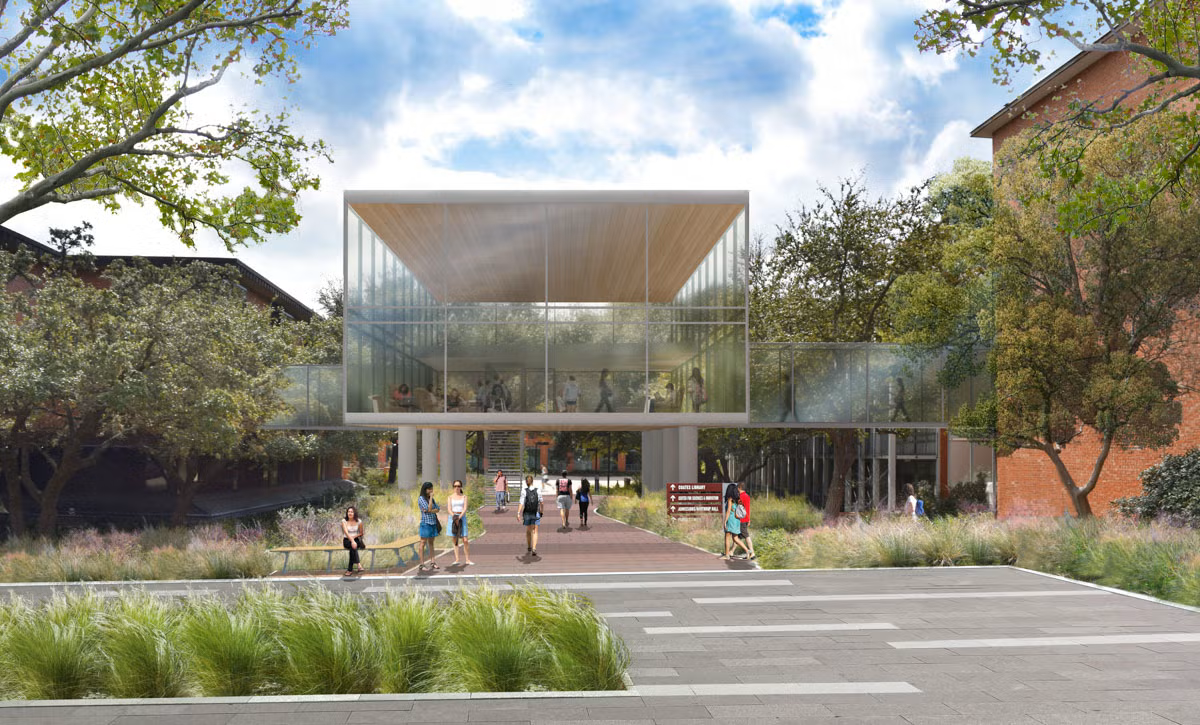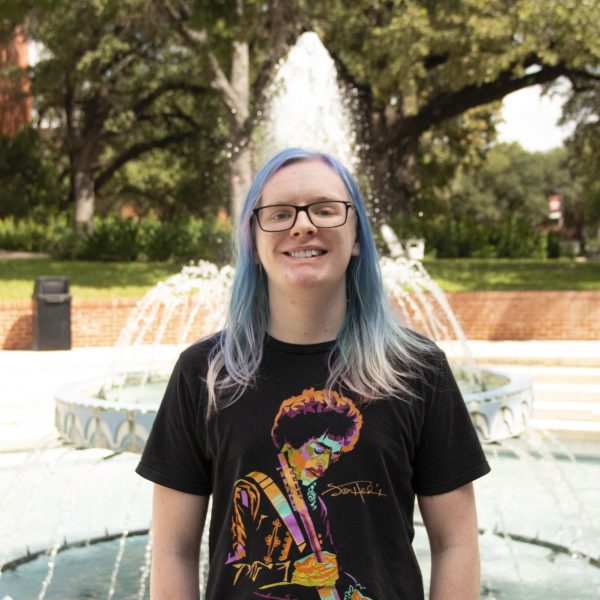After a long pause due to COVID-19, the Trinity University Debate program hosted a public debate in Dicke Hall last Thursday. Four debaters, forming two teams of two, argued over the merits of a carbon tax policy, showcasing the team before the start of their competitive season.
Throughout the debate on Sept. 5, the affirmative team, featuring Brooklyn King, sophomore political science major, and Jack Moore, senior political science major, argued in favor of a comprehensive United States tax policy on carbon usage. The negative team, featuring Will Walker, junior sociology major and Avery Wilson, senior English major, favored an eco-socialist policy of economic reorganization to combat climate change.
William Jensen, director of the debate team and associate professor of human communication and theater, introduced the proceedings, emphasizing the fundamental role of debate in democracy. Additionally, he announced two more public debates throughout the semester, one on Oct. 2 about immigration and another on Oct. 22 about reproductive rights.
“One of the things that debate offers is that process of contestation that requires a response,” Jensen said. “So there’s a responsibility that a debater feels that they have to listen well [to their opponent].”
Jensen has been involved in competitive debate for 24 years, and he observed that debate can sharpen students’ intellectual skills and knowledge base of particular subjects.
“It’s different than what you would get in a major because it’s self-directed, but also it’s intersubjective, so you have to be responding to the arguments of your opponents,” Jensen said.
From the affirmative team, Avery Wilson, senior English major, said that her team’s weakest area was their struggle to refute the Jevons’ paradox, which states that more efficient technology under capitalism counterintuitively increases resource usage. Wilson noted her team’s strongest argument was the marketability of a carbon tax to the public as opposed to a radical eco-socialist alternative.
“Eco-socialism is probably a scary term to a large portion of America,” Wilson said. “So I think one of the strongest things for a carbon tax is that it’s doable in a more easily imaginable [time] frame.”
Wilson has participated in debate since her first year of high school, which inspired her to major in English.
“A lot of the research that we were doing and the authors we read oftentimes base their criticism of the world … in literary English stories, and in tales, fables, myths,” Wilson said. “A lot of debate focuses on what it means to be human. What does it mean to live in these structures as people?”
From the negative team, Jack Moore, senior political science major, said he believed his team’s strongest arguments concerned the inability of a carbon tax to address the multifaceted problem of climate change.
“We need stronger solutions which get at the root of the problem, which we think is growth for economic growth’s sake,” Moore said.
However, Moore stated the affirmative team had a strong case that legal and popularity obstacles to eco-socialist policy might be overwhelming.
“I think there’s definitely room for us to improve our arguments there,” Moore said. “Public concern is one of the biggest and most effective arguments against eco-socialism.”
Moore was involved in debate for four years in high school and sporadically throughout college. He emphasized that participation in competitive debate was crucial for his intellectual and academic development.
“It’s been really wonderful. Just having to spend a year on some random topic and learn every facet of it has made me smarter and more willing to accept that I’m wrong in a lot of situations,” Moore said. “With regards to school, it helps me read my assignments faster, it helps me with writing, it improves my critical thinking.”
Regarding the next debate on immigration, Moore said he hopes to get deeper into the sources for their arguments.
“We were really big picture in this debate, but for an issue like immigration there’s tons of data,” Moore said. “It’s really kind of both fun and very interesting to get into the weeds of it, the data-centric side of the debate.”

